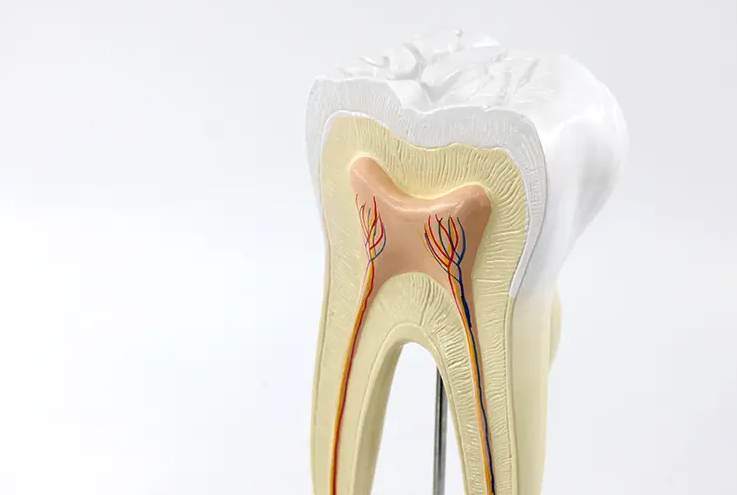
It is best for patients with periodontal disease to consult an oral doctor and choose a suitable brush head according to the size of their teeth space.
Q: Brush your teeth at least twice a day with interdental brushes. Do you still need to floss?
No need to repeat. Where you can brush between your teeth, you don't need to floss. If the adjacent gums are intact, the gap is not large, and there is no room for the interdental brush, then floss is the most effective cleaning tool.
Q: Can water floss replace regular floss or interdental brush?
There is a difference in cleaning efficiency. Water floss cannot completely replace regular floss. Because water floss is cleaned by pulsed water, it can remove food and soft dirt in the adjacent gap.
In the case that the gums are not receding and the tooth space is not exposed, the water can not penetrate the tooth space, and the dental floss can be cleaned around the entire adjacent space, so the cleaning efficiency of water floss is definitely not as good as ordinary floss.
Water floss is not a substitute for interdental brushes. Because plaque is so strongly attached, it cannot be completely removed with gargling or conventional water. So high-frequency pulsed water can only remove a portion of the plaque on the surface, but the effect is still worse than physical friction methods such as interdental brushes and floss.
Q: Is electric toothbrush better than manual brushing?
As long as the method is correct, there is not much difference between the two. The effect of electric toothbrushes is not much different from that of manual pasteurization.
Generally, it takes at least 3 minutes to brush your teeth, and there is a saying that "only 2 minutes is enough with an electric toothbrush."
How long to brush your teeth depends on the method and frequency of use, as long as the method is correct, generally 3 minutes. The price of electric toothbrushes on the market is between hundreds of dollars and thousands of dollars, and what kind of brushing tools to use is up to people.
Q: Does "pregnant toothbrush" work well? Can I clean my teeth during pregnancy?
Pregnant women can use soft toothbrush + floss. The popular "pregnant woman toothbrush" in the market is not recommended. This kind of toothbrush is made of gauze, which has edible salt on it, and the cleaning effect is not good.
Pregnant women can use a soft-bristled toothbrush to brush their teeth in the morning and at night, along with flossing. During pregnancy, the gums become more sensitive to bacteria and should be cleaned more carefully. Zhao Chuanjiang suggested that it is best to come to the periodontal department to do a thorough cleaning and check hidden dangers before preparing for pregnancy.
Some people say that during pregnancy can not go to the hospital to clean teeth, think it will be bad for the baby. Zhao Chuanjiang explained that in fact, dental cleaning does not have a direct impact on the baby, but there may be bleeding during dental cleaning, oral bacteria may cause bacteremia after entering the blood, and psychological factors such as pain and tension of pregnant women will also have a certain impact on the baby.
Q: Do daily maintenance at home, do not need to go to the hospital to clean teeth?
Regular dental cleaning is still required. Daily teeth cleaning will have many omissions, especially under the gums, even with Pap brushing method, using floss, at most can only clean 1 to 2 mm below the gingiva, the effect is not as thorough as dental cleaning.
It is best for patients with periodontal disease to go to the dental department for dental cleaning every six months to one year.
Q: How long does a daily thorough cleaning take?
In the case of skilled operation, brush 3 to 5 minutes, floss 2 to 3 minutes.
Q: The longer the brushing time, the better the cleaning effect?
Not so. Brushing for too long can cause unnecessary wear and tear on teeth, especially if the bristles are hard or the brushing method is not correct.
Q: Can mouthwash be used for a long time?
Whether mouthwash can be used for a long time has no authoritative explanation in the industry. Some doctors do not advocate long-term use of mouthwash, or can cause oral flora imbalance and oral mucosal irritation.
Mouthwash is not the preferred routine cleaning method, it is only an auxiliary cleaning method after brushing, and cannot replace brushing. Mechanical cleaning is the best way to remove dental plaque.

